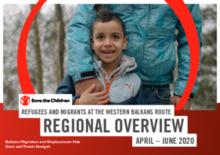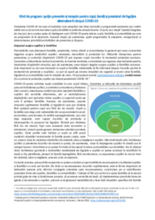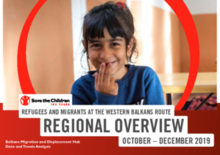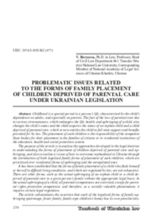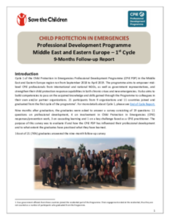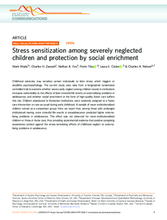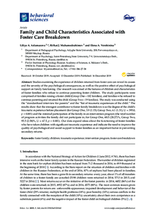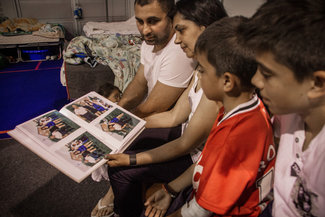

Displaying 541 - 550 of 1079
Data and Trend Analysis (DATA) Refugees and Migrants at the Western Balkans Route Regional Overview, covering period April – June 2020, describes key trends in migrations in the region, detailing information about the number of people on the move, demography (age, sex, country of origin, etc), behavioral patterns, and routes in use - with a focus on children, particularly unaccompanied children.
Pandemia COVID-19 solicită adaptarea și / sau dezvoltarea de servicii și programe pentru a continua să servim cel mai bine copiii și familiile lor în timpul acestei perioade rapid schimbătoare.
Această mapă, de asemenea, ajută programelor la adaptare, reorganizare și determinarea priorității activităților de prevenire și răspuns.
This report describes key trends in migrations in the Balkans region, detailing information about the number of people on the move, demography (age, sex, country of origin, etc), behavioral patterns, and routes in use - with a focus on children, particularly unaccompanied children.
The purpose of the article is to analyze the approaches developed in the legal doctrine to understanding the forms of placement of children deprived of parental care and upbringing, and also to outline a vision of how to overcome orphanhood in Ukraine through the introduction of both legalized family forms of placement of such children, which are prioritized over residential forms of upbringing and the unregulated ones.
This report presents results from a survey administered to graduates of the Child Protection in Emergencies Professional Development Programme (CPiE PDP) in the Middle East and Eastern Europe region to evaluate if and how the CPiE PDP has influenced their professional development and to what extent the graduates have practiced what they have learned.
The current study uses data from a longitudinal randomized controlled trial to examine whether severe early neglect among children reared in institutions increases vulnerability to the effects of later stressful life events on externalizing problems in adolescence, and whether social enrichment in the form of high-quality foster care buffers this risk.
This article from France 24 shares the story of Visinel Balan, who grew up in an orphanage in Romania in 1987 as "one of the 'Decretei' or 'children of the decree': children abandoned by poorer families as a result of the natalist policies of the communist dictator Nicolae Ceausescu" when he was two months old.
The Finding the Way Home documentary highlights the painful realities of the eight million children living in orphanages and other institutions around the world, telling the stories of six children in Brazil, Bulgaria, Haiti, Nepal, India and Moldova who have found their way into the care of loving families after spending periods of their lives in an institution.
This research was aimed at the features of children and characteristics of foster families who refuse to continue parenting foster children.

